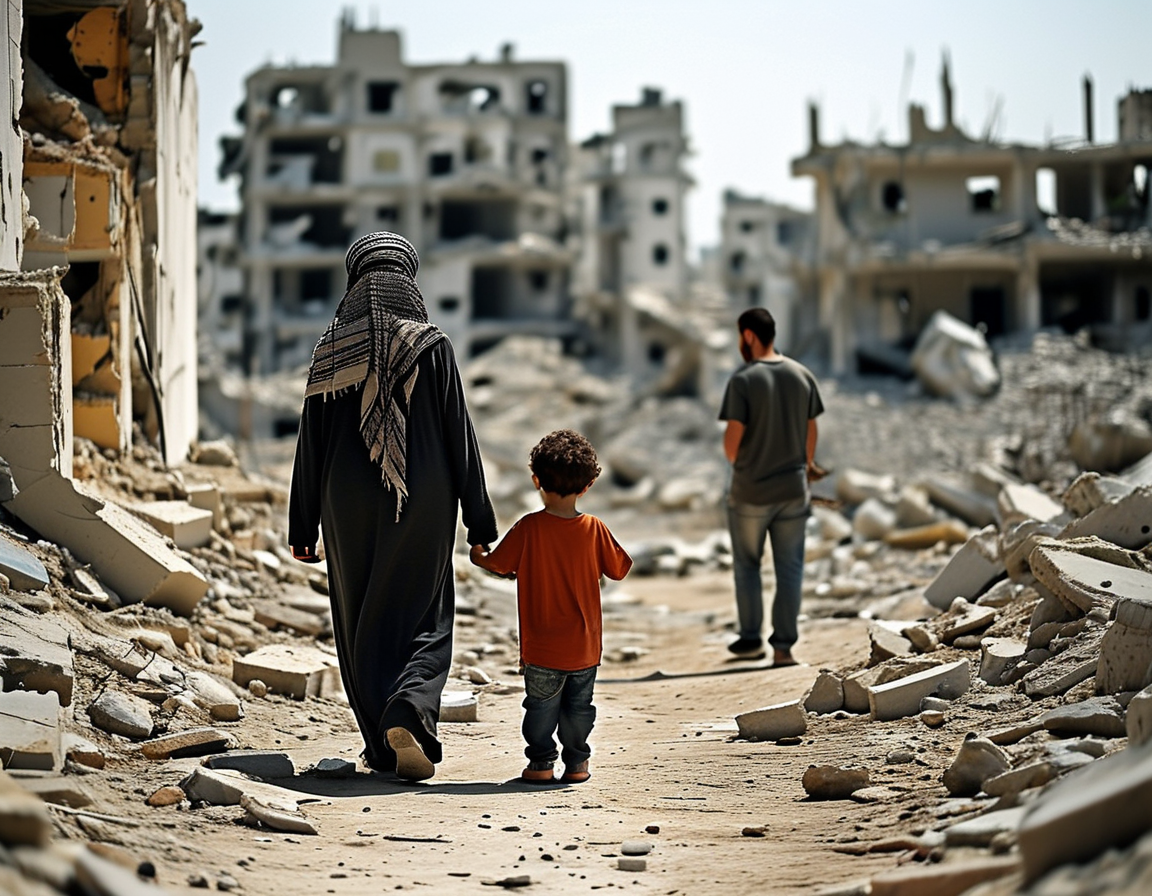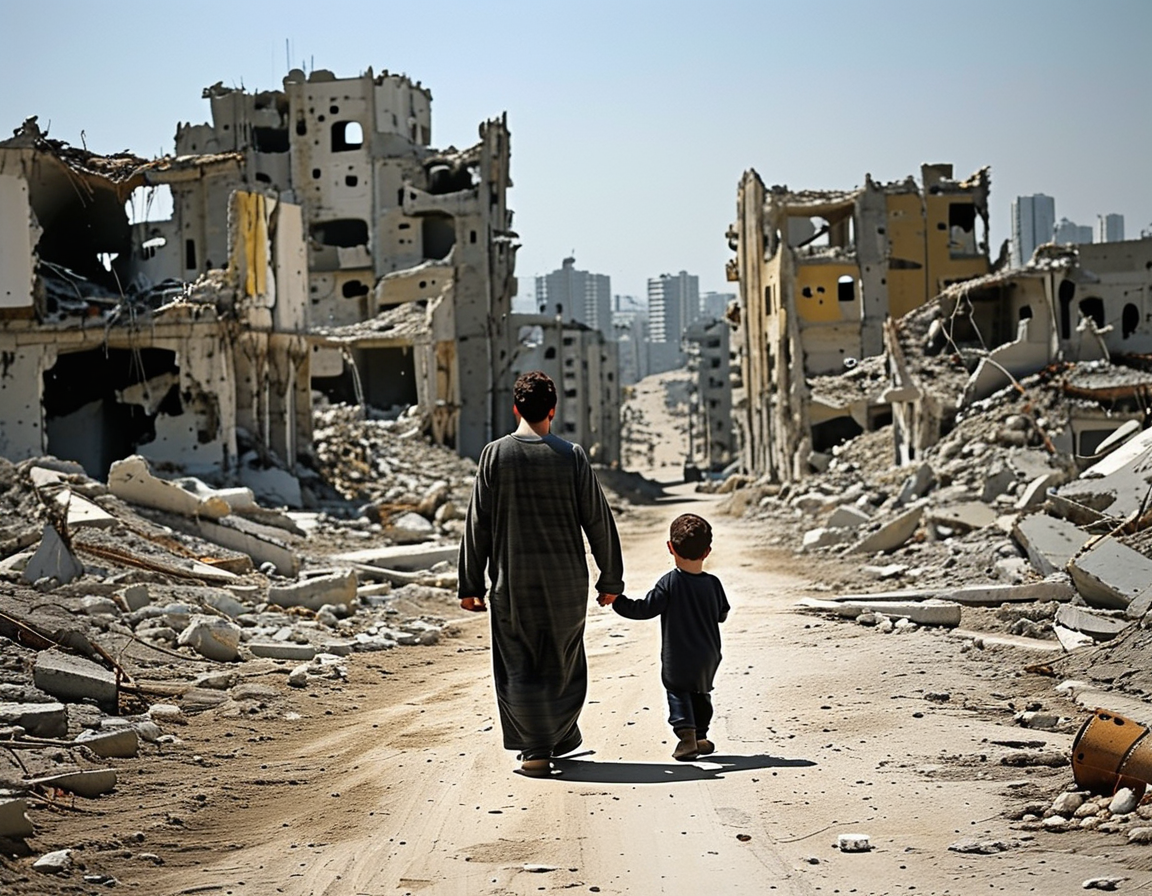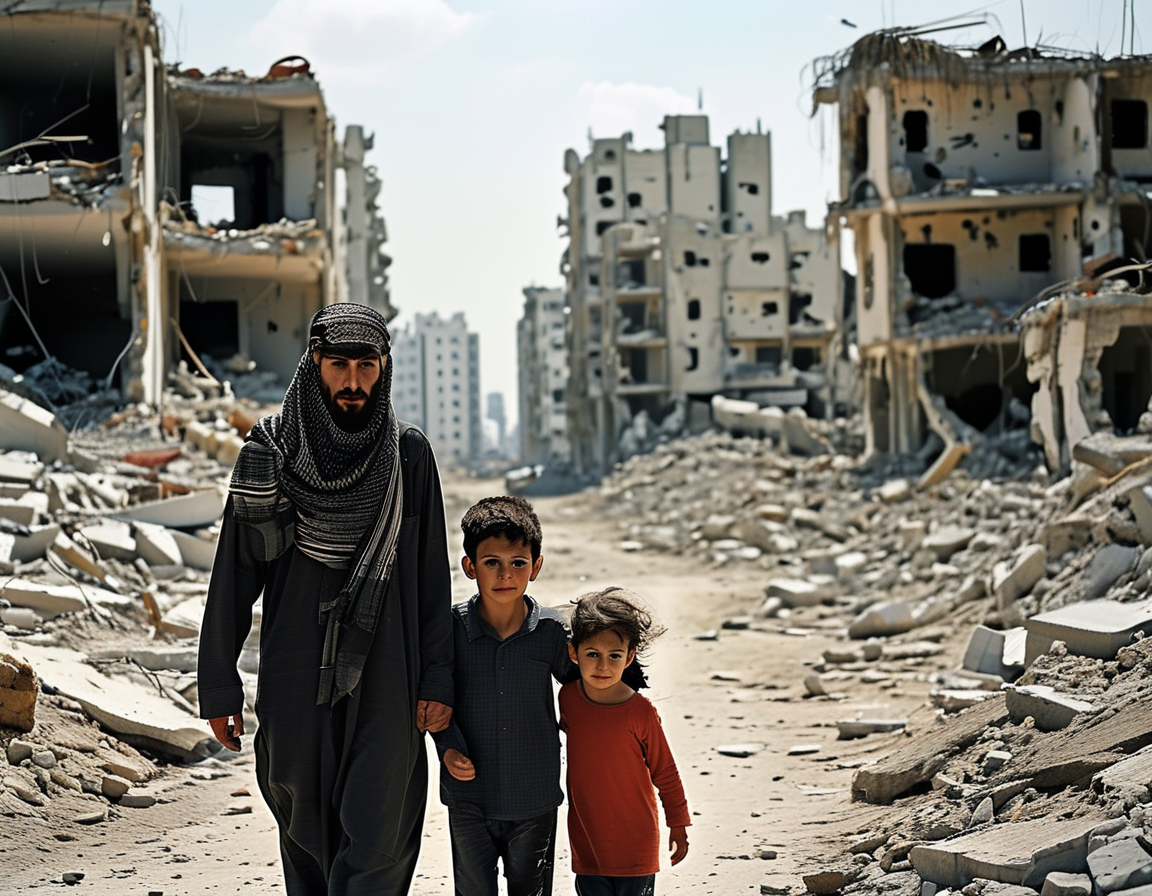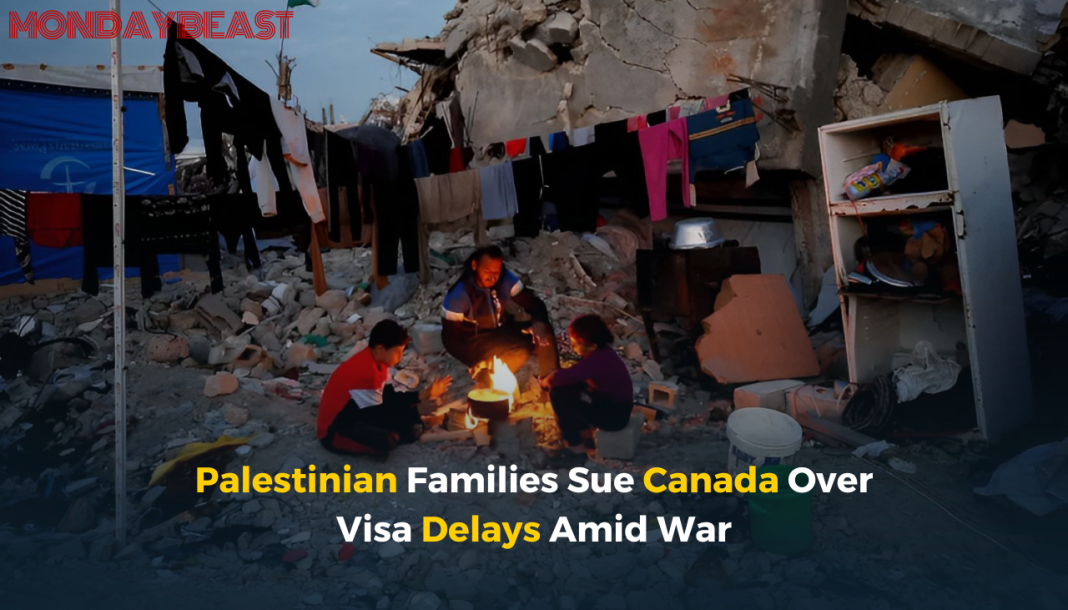Canada is facing a lawsuit. The stakes are high; lives are on the line. The case involves Palestinian families stuck amid the chaos of war in Gaza, seeking refuge in Canada. They argue that delays in the visa process are nothing short of life-threatening.
This lawsuit, filed in the Federal Court of Canada, stems from the suffering of 53 Palestinians. They had applied to a special visa program, launched in January 2024. The initiative’s intent was noble: to provide temporary residence to vulnerable families in Gaza. But the execution? That tells a different story.

Hana Marku, a Toronto lawyer, speaks for these families. She describes the emotional toll of waiting. ‘It’s emotional torture, frankly,’ she stated. She points out how confused and anxious her clients are. Many submitted applications promptly, expressing their desperate desire to escape the ongoing violence. Yet, none have received the necessary codes to progress their visa applications.
The situation in Gaza is dire. Each passing day feels like an eternity. The indiscriminate bombings have continued for 15 months, tearing through neighborhoods and historic sites. The conditions are described as inhumane. Families are left grappling with the reality of existence in a war zone.
In early January, Canada introduced the visa program. It aimed to help those whose lives were at risk due to the conflict. Extended family members of Canadian citizens could apply for temporary residency. If accepted, they would receive protection for up to three years. Simple enough in theory — but so many hurdles exist in practice.

Those trying to navigate the process often feel lost. Marku explained that the questions posed by Canada were invasive. Some inquiries felt unnecessary. Questions about scars or past injuries seemed to cross a line. Families were left wondering: what does this have to do with safety?
Then, there’s the confusion surrounding reference codes. While some families received codes quickly, many did not. The random nature of this distribution has fueled frustration. ‘There’s no rhyme or reason here,’ Marku said. Families feel abandoned by a system they hoped would help them.
Statistics reveal a grim reality. Since launching the scheme, only a fraction of the applicants have succeeded. The Canadian government reported processing a small number of applications. As of late January, 4,873 applications awaited processing.

Those waiting often feel helpless and worried about their loved ones. A relative in Canada described the pain. They feel stuck between two worlds — one ravaged by violence, the other, a distant promise of safety. ‘I never thought I’d see this day,’ they confessed, witnessing destruction from afar.
Adding to the weight of the situation, humanitarian aid is critically low in Gaza. Shortages of food, medical supplies, and basic necessities are rampant. Amid this backdrop, the notion of family reunification seems distant, almost cruel. For those left behind, hope is dwindling, accompanied by fears of increasing death tolls.
The ongoing challenges are not merely bureaucratic. They are deeply personal. Marku and her team are racing against time. As the program is set to close, they seek to compel the government for the necessary codes. However, the emotional weight of this task cannot be understated. Leaving families in limbo feels worse than outright rejection.
Life in Gaza continues, but the world outside feels increasingly distant and indifferent. A recent ceasefire brought a glimmer of hope, but it was fleeting. The underlying crisis remains unresolved. The humanitarian situation still demands urgent attention. The lawsuit casts a spotlight on these failings in the immigration process.
The lives of these families hinge on a response from the court. They yearn for a clear path towards reunification. This fight is not just legal; it’s a testament to the human spirit’s resilience.
In conclusion, this lawsuit might bring about necessary changes. It raises questions we can no longer ignore. What does it mean for a country to protect its most vulnerable? How do bureaucracies fulfill their promises amid ongoing crises? The answers aren’t easy, but conversations like these are essential as we move forward.




